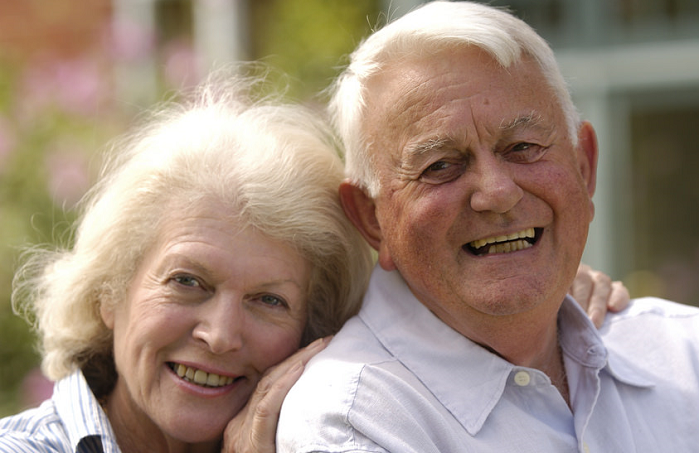The Nova Scotia media has reported on the case of the woman who is trying to prevent the euthanasia death of her husband of 48 years.
The Euthanasia Prevention Coalition needs your help to pay the legal expenses in this precedent setting case. (Link).
A few weeks ago, EPC received a call from a woman who was upset that her husband of 48 years had been approved for MAiD (euthanasia), even though he was not seriously ill or dying. Her husband has a chronic condition (COPD) and a few other health concerns that are not uncommon for an older man. She is also concerned that her husband claims to have other health issues, but in fact there is no proof that he has these conditions.
Taryn Grant reporting for CBC news Nova Scotia wrote:
A Nova Scotia woman has gone to court to intervene in her husband’s plans to die.
While he says he’s suffering and near the end of his life because of advanced chronic obstructive pulmonary disease (COPD), she says his wish to die is not based on physical illness, but anxiety and mental delusions.
The man was approved and scheduled for medical assistance in dying (MAID) in July, but his wife applied for a permanent injunction from Nova Scotia Supreme Court, forcing him to pause his plans. She also applied for an interlocutory injunction, which would bar him from a medically assisted death until the final ruling on a permanent injunction.
The injunction was denied last Friday.
Hugh Scher, a lawyer representing the woman, told CBC he’s already filed an appeal, which is to be heard in the high court next week (August 26). The man’s plans to die will be forestalled at least until the appeal proceedings are complete.
Follow LifeNews.com on Instagram for pro-life pictures and videos.
There is no publication ban tied to the case, but (Justice) Rosinski does not name the couple or give full names of the medical professionals involved in the case.
CBC is also not naming those involved in the case at this time.
Grant reports on the conflicting medical and expert reports:
The man in this case was assessed by two nurse practitioners, a psychiatrist, a respirologist and three physicians between April and July to consider his request for MAID.
Rosinski considered reports from those seven medical professionals, as well as an affidavit — submitted by the woman — from a person who diagnosed her husband with hypochondria.
That person graduated from Dalhousie University’s medical school in 1993, but he is no longer a licensed physician, and so Rosinski said he gave his affidavit “minimal weight” compared to the opinions and observations of licensed doctors.
While none of the licensed medical professionals cited in the case suggested hypochondria, they did bring up mental illness including depression, anxiety and dementia.
Some of them said that despite signs of those conditions, he was still perfectly capable of consenting, while others said he should not be allowed to make the decision to die.
The man’s physical condition was similarly disagreed upon, with some saying his lung disease was relatively stable and others saying they would not be surprised if he were to die within the next month.
But the three physicians who provided the man’s final assessments agreed that he was fit to decide his fate, and that he he was frail and ill enough to qualify for MAID.
Scher said the conflicting reports show the need for a fulsome judicial review of the man’s request to die.
Rosinski noted that this hearing did not see all the evidence in the case “in a full and robust fashion,” because it was not the final stage of hearing. But, he said, the evidence he did see didn’t meet the threshold for an interlocutory injunction.
While it’s a serious matter that could cause irreparable harm, Rosinski wrote, the balance of harm weighed more heavily on the man, should the injunction be granted, than it would on his wife if it were not.
Grant reports that a full-hearing of the case will likely occur in the Spring of 2021.
Rosinski said the full hearing hadn’t been scheduled and an early and optimistic start date would be late fall, likely to carry into spring 2021.
Rosinski said the case may be the first of its kind disputed in Nova Scotia, Scher said it could set an important precedent for judicial oversight in MAID.
EPC needs your financial help to pay for the costs in this precedent setting case.
This woman could not have launched the legal proceedings and file an appeal without the financial support of the Euthanasia Prevention Coalition. She loves her husband and she launched the legal action to prevent her husband’s wrongful death.
EPC agreed to pay for the legal bills, but in turn, we need your financial support.
Donate to the Euthanasia Prevention Coalition (Link) by:
- Paypal (Link),
- Donate by credit card by calling the EPC office at: 1-877-439-3348,
- Send a cheque to the Euthanasia Prevention Coalition,
- Box 25033, London Ontario Canada N6C 6A8
Thank you for considering EPC in this precedent setting case.
LifeNews.com Note: Alex Schadenberg is the executive director of the Euthanasia Prevention Coalition and you can read his blog here. File photo.








